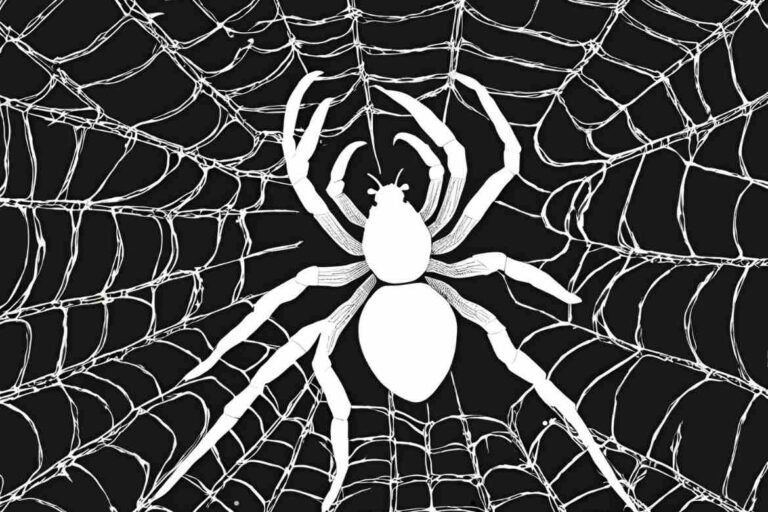What Do Bichon Frise Usually Die From?
The Bichon Frise is a beloved small dog breed known for its cheerful demeanor and fluffy, white coat. However, like all dog breeds, they are predisposed to certain health issues. Understanding the common health problems that affect Bichon Frises can help owners take proactive steps to ensure their pet’s longevity and well-being.
In this article, we will explore what do Bichon Frise usually die from, the common health issues they face, preventive measures, and tips for maintaining a healthy lifestyle for your furry friend.
Overview of Bichon Frise

The Bichon Frise is a small breed that typically weighs between 10 to 20 pounds and stands about 9.5 to 11.5 inches tall. Known for their friendly temperament and playful nature, these dogs thrive on companionship and are often great with families. Their hypoallergenic coat makes them a popular choice for those with allergies, but they still require regular grooming.
Discover why some people believe Shih Tzus might not be the best choice for a pet in this insightful article: Why Shih Tzus Are the Worst Dog.
Common Health Issues in Bichon Frise
Bichon Frises are prone to several health concerns, which can significantly impact their lifespan. Understanding these issues is crucial for any Bichon owner. Below is a table outlining the most common health problems associated with this breed:
| Health Issue | Description | Potential Impact on Lifespan |
|---|---|---|
| Dental Disease | Bichon Frises are prone to periodontal disease due to their small mouths. | Can lead to systemic infections if untreated; may reduce lifespan. |
| Patellar Luxation | A condition where the kneecap dislocates, causing lameness. | Can lead to arthritis and mobility issues. |
| Cushing’s Disease | A hormonal disorder caused by an overproduction of cortisol. | Can lead to chronic health issues and reduced quality of life. |
| Hypoglycemia | Low blood sugar levels, especially in younger dogs. | Can lead to seizures and can be life-threatening if not managed. |
| Allergies | Skin allergies are common in Bichon Frises. | Can cause discomfort and require ongoing treatment. |
| Ear Infections | Due to their floppy ears, Bichon Frises are prone to ear infections. | Chronic infections can lead to hearing loss. |
| Obesity | Prone to weight gain if not managed properly. | Can lead to a shorter lifespan and increased risk of other diseases. |
| Cancer | Various types of cancer can affect Bichon Frises, including lymphosarcoma. | Depending on the type and stage, cancer can significantly impact lifespan. |
Detailed Examination of Common Health Issues
- Dental Disease
- Description: Dental disease is one of the leading health issues in Bichon Frises. Their small mouths can lead to overcrowding, which contributes to plaque buildup and gum disease.
- Prevention: Regular dental care, including brushing, dental chews, and professional cleanings, is crucial for preventing dental disease.
- Patellar Luxation
- Description: This condition often occurs in small breeds and involves the dislocation of the kneecap. Symptoms include limping or skipping while walking.
- Treatment: In severe cases, surgical intervention may be necessary.
- Cushing’s Disease
- Description: Also known as hyperadrenocorticism, this condition results from an excess of cortisol in the body. Symptoms include increased thirst, urination, and a pot-bellied appearance.
- Management: Treatment typically involves medication to control cortisol levels.
- Hypoglycemia
- Description: This is particularly common in young Bichon Frises and occurs when blood sugar levels drop too low. Symptoms can include lethargy, weakness, and seizures.
- Prevention: Feeding small, frequent meals can help maintain stable blood sugar levels.
- Allergies
- Description: Bichon Frises can be allergic to various environmental factors, such as pollen, dust mites, and certain foods. Symptoms often include itching, redness, and skin infections.
- Management: Identifying and avoiding allergens is key, along with potential medication and dietary changes.
- Ear Infections
- Description: Due to their floppy ears, Bichon Frises are prone to moisture retention in the ear canal, leading to infections.
- Prevention: Regular ear cleaning can help prevent infections.
- Obesity
- Description: Like many small breeds, Bichon Frises can easily become overweight if not properly exercised and fed a balanced diet.
- Prevention: Regular exercise and mountain lions dangerous portion control are vital in maintaining a healthy weight.
- Cancer
- Description: Bichon Frises can be susceptible to various forms of cancer, including skin and lymphomas.
- Detection: Regular vet check-ups are essential for early detection.
What Do Bichon Frise Usually Die From?

While the average lifespan of a Bichon Frise is between 12 to 15 years, various health issues can lead to premature death. Below is a table summarizing the primary causes of mortality in Bichon Frises:
| Cause of Death | Description | Prevention Strategies |
|---|---|---|
| Cancer | A leading cause of death in older Bichon Frises. | Regular vet check-ups for early detection. |
| Cardiac Issues | Heart problems can develop over time in aging dogs. | Regular heart health monitoring. |
| Kidney Failure | Chronic kidney disease can lead to organ failure. | Regular vet visits and proper hydration. |
| Accidents/Injuries | Small dogs are more prone to accidents. | Supervision and a secure environment. |
| Old Age | Natural aging can lead to various health decline. | Quality nutrition and regular care. |
The Importance of Veterinary Care
Regular veterinary check-ups are crucial for Bichon Frise owners. Early detection of health issues can lead to more effective treatment and management, which can significantly improve your dog’s quality of life and longevity.
Keeping up with vaccinations, dental care, and preventive health measures can help mitigate some of the risks associated with the common health issues outlined above. Learn about the dangers of chocolate for dogs and what to do if your pet consumes.
Preventive Measures for a Healthy Bichon Frise

- Regular Exercise
- Bichon Frises require daily exercise to maintain a healthy weight and overall well-being. Regular walks, playtime, and mental stimulation can help keep them active and engaged.
- Balanced Diet
- Feed your Bichon a high-quality, balanced diet tailored to their age, weight, and activity level. Consulting with your veterinarian about the best diet for your dog is essential.
- Grooming
- Regular grooming not only keeps their coat clean but also allows for early detection of skin issues and parasites. Schedule regular grooming sessions to maintain their coat and skin health.
- Dental Care
- Establish a regular dental care routine, including brushing, dental treats, and professional cleanings, to prevent dental disease.
- Hydration
- Ensure your dog has access to fresh water at all times. Proper hydration is essential for kidney health.
- Training and Socialization
- Proper training and socialization can help reduce stress and anxiety, contributing to overall health. It also helps prevent behavioral issues.
Conclusion
Understanding what do Bichon Frise usually die from is an essential aspect of responsible pet ownership. By being aware of the common health issues associated with this breed and taking preventive measures, you can significantly enhance the quality and length of your Bichon Frise’s life. Regular veterinary care, a balanced diet, and a healthy lifestyle are critical components in ensuring your furry companion lives a long, happy life.
FAQs:
What are common health issues in Bichon Frise?
Bichon Frise are prone to several health issues, including allergies, dental problems, and skin conditions.
Do Bichon Frise have a shorter lifespan?
While Bichon Frise can live 12 to 15 years, they may face health challenges that can affect their lifespan.
What are the leading causes of death in Bichon Frise?
Common causes of death include cancer, heart disease, and complications from dental disease.
- Mexican Red Headed Bird: A Brilliant Avian Wonder - January 16, 2025
- Can Turkeys Eat Bread? - January 15, 2025
- crocodile and plover bird relationship articles for students - January 12, 2025







